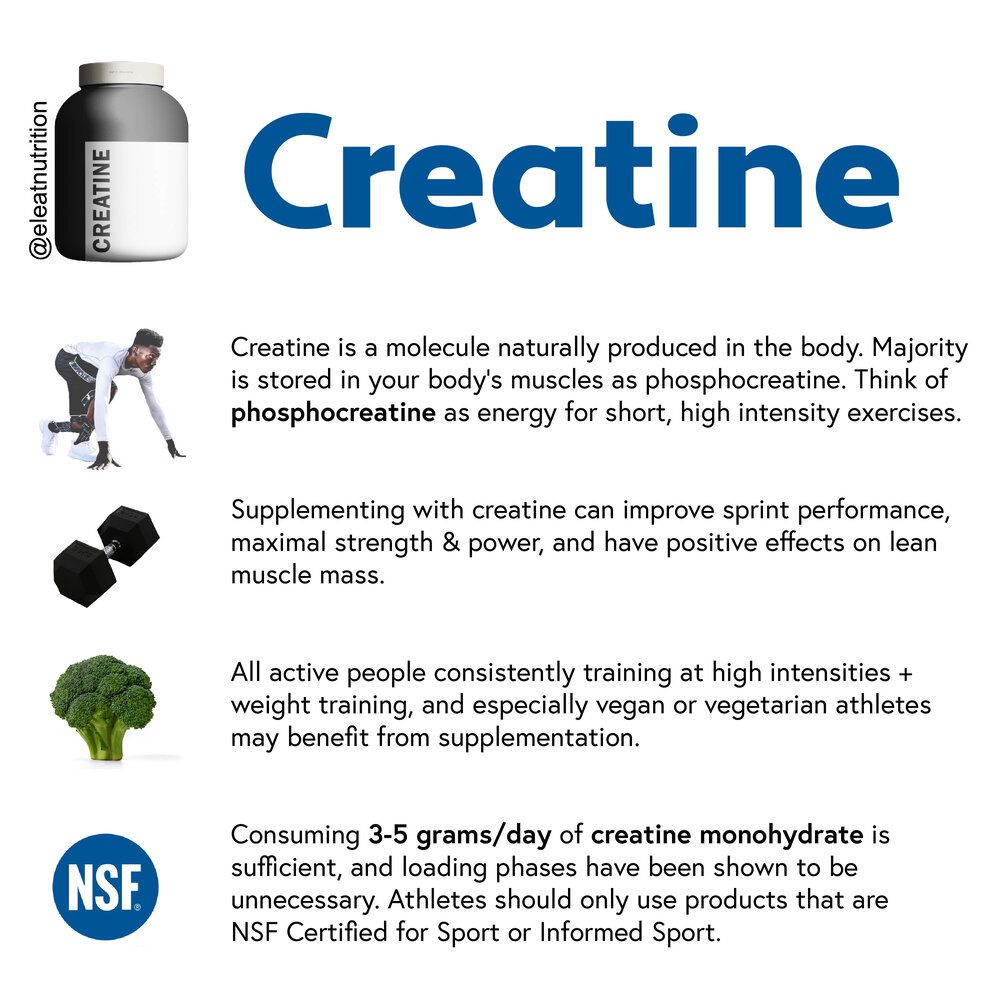The Ultimate Guide To Creatine: Benefits, Risks, And Dosage

Table of Contents
The Science Behind Creatine: Understanding How it Works
Creatine is a naturally occurring organic compound found primarily in red meat and fish. Its primary role in the body is to help generate adenosine triphosphate (ATP), the body's main energy currency. Supplementing with creatine significantly boosts your body's ATP stores, leading to enhanced physical performance.
Creatine and Muscle Growth
Creatine's impact on muscle growth is multifaceted:
- Increased ATP levels: Higher ATP levels translate to greater power output during high-intensity exercise, allowing you to train harder and longer. This increased training volume is a key driver of muscle growth.
- Improved muscle hydration: Creatine draws water into your muscle cells, leading to increased cell volume. This "cell volumization" is believed to stimulate muscle protein synthesis and contribute to muscle growth. Think of it like inflating a balloon – a larger muscle cell is a growing muscle cell.
- Muscle protein synthesis: Creatine indirectly enhances muscle protein synthesis, the process of building new muscle tissue. By facilitating better recovery and allowing for more intense training, it creates an optimal environment for muscle growth.
Creatine and Strength Gains
Numerous studies demonstrate creatine's effectiveness in boosting strength and power:
- Significant improvements in 1RM (one-rep max) lifts: Creatine supplementation consistently leads to noticeable increases in maximum strength, enabling you to lift heavier weights.
- Enhanced power output: This is particularly evident in short bursts of intense activity, such as sprinting, jumping, and weightlifting. The increased ATP availability fuels explosive movements.
- Improved strength contributes to better performance: The enhanced strength translates to better performance in various sports and activities, from weightlifting to team sports.
Benefits of Creatine Beyond Muscle Growth
While muscle growth and strength gains are the primary reasons many people use creatine, emerging research suggests additional benefits:
Cognitive Benefits
Although research is ongoing, some studies suggest potential cognitive benefits:
- Improvements in memory and cognitive function: Creatine may enhance memory, learning, and other cognitive functions, particularly in individuals with cognitive impairments. However, more research is needed to confirm these findings conclusively.
- Potential benefits for neurological conditions: Preliminary research suggests potential benefits for individuals with certain neurological conditions, but this is an area requiring significant further study and should not be considered a treatment. Always consult a physician before using creatine for any medical condition.
- Further research is needed: While promising, more high-quality research is necessary to fully understand the extent and mechanisms of creatine's cognitive effects.
Creatine for Specific Populations
Creatine can benefit various populations:
- Vegetarians and vegans: Since creatine's main dietary sources are meat and fish, vegetarians and vegans may have lower creatine levels and may benefit from supplementation.
- Older adults: Creatine supplementation can improve physical function, strength, and overall quality of life in older adults.
- Consult a doctor: Individuals with pre-existing health conditions should consult their doctor before starting creatine supplementation.
Potential Risks and Side Effects of Creatine
Creatine is generally considered safe when used appropriately, but potential side effects exist:
Common Side Effects
Most side effects are mild and temporary:
- Weight gain (water retention): Creatine causes water retention, leading to a temporary increase in weight. This is usually harmless and diminishes once supplementation ceases.
- Stomach upset: Some individuals experience mild stomach discomfort, often alleviated by taking creatine with food.
- Muscle cramps: Rarely, muscle cramps may occur, possibly due to dehydration. Adequate hydration is crucial.
Rare but Serious Side Effects
While rare, serious side effects are possible, and it's crucial to consult your doctor if you experience any unusual symptoms. Credible research on serious side effects associated with creatine supplementation is limited.
Drug Interactions
Creatine may interact with certain medications. Always consult your doctor or pharmacist before starting creatine if you are on any medication, especially those affecting kidney function.
Optimal Creatine Dosage and Cycle
Optimizing your creatine intake involves understanding loading and maintenance phases, as well as cycling strategies:
Loading Phase vs. Maintenance Phase
- Loading Phase: Involves taking a higher dose (20g/day) for the first 5-7 days to rapidly saturate your muscles with creatine.
- Maintenance Phase: After the loading phase, a lower dose (3-5g/day) is sufficient to maintain muscle creatine levels.
Recommended Dosage
The generally recommended daily dosage is 3-5g, taken consistently. Always follow the instructions on the product label.
Cycling Creatine
Cycling creatine involves periods of supplementation followed by periods of discontinuation. While some believe cycling prevents tolerance, current research doesn't definitively support this practice. Consult a healthcare professional to determine if cycling is right for you.
Choosing and Using Creatine Supplements
Making informed choices about your creatine supplement is essential:
Types of Creatine
Creatine monohydrate is the most studied and effective form of creatine. Other forms, like creatine HCL, are available but may not offer significant advantages.
Quality and Purity
Choose high-quality creatine from reputable brands that have undergone third-party testing to ensure purity and potency. Look for products that list their manufacturing processes.
Proper Storage and Handling
Store creatine in a cool, dry place away from direct sunlight and moisture to maintain its potency.
Conclusion
This ultimate guide to creatine has covered its benefits for muscle growth and strength, potential cognitive benefits, safety concerns, and optimal dosage. Remember, creatine is a powerful supplement that can significantly enhance your fitness journey when used responsibly and under the guidance of a healthcare professional. While generally safe, always prioritize quality products, consult your doctor before starting any supplementation, especially if you have pre-existing health conditions, and be aware of potential side effects. Start your creatine journey today and optimize your creatine intake for optimal results. Remember to prioritize responsible supplementation and select high-quality products for the best outcomes. Learn more about creatine benefits and how to integrate it safely into your fitness routine!

Featured Posts
-
 Ndukwes Record Breaking Performance Secures Pbc Tournament Mvp Title
May 16, 2025
Ndukwes Record Breaking Performance Secures Pbc Tournament Mvp Title
May 16, 2025 -
 Golden State Warriors Jimmy Butler A Better Fit Than Kevin Durant
May 16, 2025
Golden State Warriors Jimmy Butler A Better Fit Than Kevin Durant
May 16, 2025 -
 Sycuan Casino Presents Padres Opening Series Details Revealed
May 16, 2025
Sycuan Casino Presents Padres Opening Series Details Revealed
May 16, 2025 -
 Congos Cobalt Export Restrictions Implications For The Global Market And The Planned Quota System
May 16, 2025
Congos Cobalt Export Restrictions Implications For The Global Market And The Planned Quota System
May 16, 2025 -
 2024s Most Popular Baby Names Tradition And Trend
May 16, 2025
2024s Most Popular Baby Names Tradition And Trend
May 16, 2025
